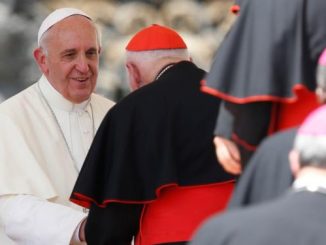
CNA Newsroom, Feb 6, 2023 / 10:30 am (CNA).
The Costa Rican Bishops’ Conference and the Archdiocese of San José announced that an agreement has been reached to compensate four victims of sexual abuse by ex-priest Mauricio Víquez Lizano, who is serving a 20-year prison sentence.
The bishops said in a Feb. 1 statement that in order to close the legal proceedings for damages against the victims, “an agreement has been reached” that is “satisfactory to all parties.”
“According to what is established in this instrument, the content of this agreement is subject to a confidentiality clause, so no statements will be made in this regard,” the local Church said.
The bishops’ conference and the Archdiocese of San José stated that “the problem of the sexual abuse of minors is a dramatic situation in society” and added that “the Church regrets that cases have occurred in ecclesial contexts and works actively for prevention in order to provide safe environments.”
In August 2022, a court ruled against the Costa Rican Bishops’ Conference, San José Archbishop José Rafael Quirós, and the Temporal Assets of the Archdiocese of San José for covering up Lizano’s sexual abuse.
The compensation amounted to 65 million colones, about $114,000.
The Church indicated at the time that it would appeal the sentence, but after several months, an agreement was finally reached with the victims.
The former priest Víquez was sentenced on March 30, 2022, to 20 years in prison for sexual abuse and the rape of an 11-year-old boy in 2003.
The abuse of the victim, who at the time was a minor, took place at St. John the Baptist Parish in Patarrá de Desamparados on the outskirts of San José when Víquez was the pastor there.
According to the local newspaper Delfino, the former priest “was also accused of 29 counts of non-penetrating sexual abuse; 22 for sexual abuse of a minor; one for attempted rape; three for rape; five for the dissemination of pornography; and one for aggravated corruption of a minor involving sexual practices.”
Víquez was captured in Mexico on Aug. 18, 2019, six months after leaving Costa Rica. Interpol had issued an international arrest warrant for him, and following his arrest he was extradited to his home country.
Víquez, who for a time was a spokesman for the Church in Costa Rica, was expelled from the clerical state by a decree dated Feb. 25, 2019.
This story was first published by ACI Prensa, CNA’s Spanish-language news partner. It has been translated and adapted by CNA.
If you value the news and views Catholic World Report provides, please consider donating to support our efforts. Your contribution will help us continue to make CWR available to all readers worldwide for free, without a subscription. Thank you for your generosity!
Click here for more information on donating to CWR. Click here to sign up for our newsletter.






Leave a Reply